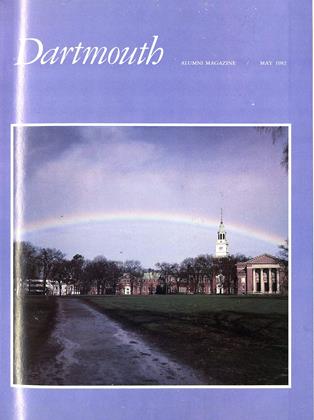To be a terrorist, as columnist Russell Baker has recently observed, "You have to believe in your own principles so strongly that you have no strength left to care about anybody else's principles." In any event, the practicing terrorist seems to assume that, because he is motivated by a strongly held political or religious principle! his acts of violence are deserving of judgment by some standard other than those brought to bear by society on the ordinary criminal. Even Professor Bishop
says that he finds himself, in defining terrorism, making a "moral judgment" that sets terrorists apart from other law-breakers, although he quickly acknowledges that it may well be true that there are some so-called terrorists who are indistinguishable from those for whom the excitement and profitability of crime provides more than adequate incentive.
There is steadily increasing evidence that the cloak of the terrorist very likely covers more of the latter than of the former. The criminal underworld has known for years that there is big money in kidnapping, extortion, robbing banks, and selling illegal weapons. And it now appears that many guerilla organizations professing political goals are deeply involved in the international drug traffic where the financial rewards are almost beyond estimation. The most effective counter action to this is not preoccupation with getting at the roots of alleged political grievances but, rather, effective police work to enforce the criminal laws.
This is precisely what recently happened in Italy in the case of General Dozier. The experience in Europe has been that, where the police not only become more professionally effective but also increasingly non-political themselves, the citizens at large became more cooperative in volunteering information to the police. The failure of many terrorist operations in the past year or so has been largely due to this fact; and, by reason of it, many dread ed terrorist organizations have been broken up. Ordinary men and women will speak up if they can trust the police to maintain their confidentiality and to provide them with effective personal protection if and when the services they have rendered become known.
Bishop, like all good lawyers bred and brought up under a system of constitutionally protected rights, is rightly concerned that antidemocratic acts do not evoke antidemocratic responses. It is my belief, as it appears to be his, that terrorism, cannot and will not prevail against effective police work in the enforcement of our existing criminal laws. And it has been my observation that police work is more effective and productive of a higher rate of criminal convictions when it is done by police trained in, and sensitive to, the constitutional protections accorded under our system of government to all persons.
Circuit Judge United States Court of Appeals, Washington, D.C.
 View Full Issue
View Full Issue
More From This Issue
-
 Feature
FeatureWhat keeps them going? A 'Mystic Glue' Perhaps
May 1982 By Dana Cook Grossman -
 Feature
FeatureTerrorism and the Niceties of Justice
May 1982 By Joseph W. Bishop Jr. -
 Feature
FeatureImpacts simply positive
May 1982 -
 Article
ArticleIn the Wide, Wide World
May 1982 By Peter Smith -
 Class Notes
Class Notes1964
May 1982 By Alexander D. Varkas Jr. -
 Class Notes
Class Notes1954
May 1982 By John L. Gillespie
Article
-
 Article
ArticleDARTMOUTH'S NEW PRESIDENT
August, 1916 -
 Article
ArticleDEATH OF MISS KATE SANBORN
August 1917 -
 Article
ArticleFuture Teacher Awards
MAY 1964 -
 Article
ArticleDartmouth Should Recruit Alumni To Be Faculty And Administrators
February 1992 -
 Article
ArticleBig Green Teams
MAY 1971 By JACK DEGANGE -
 Article
ArticleWINTER SPORTS COMPETITIONS
JANUARY 1932 By S. B. Dunn '34

